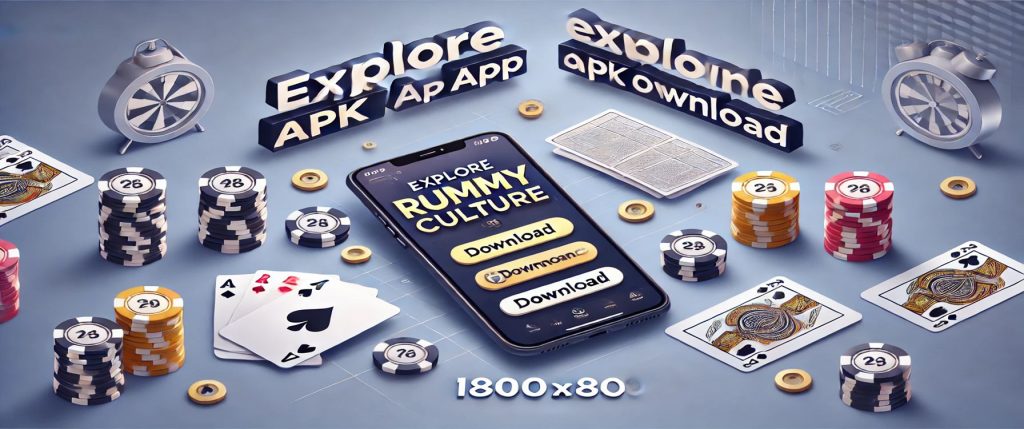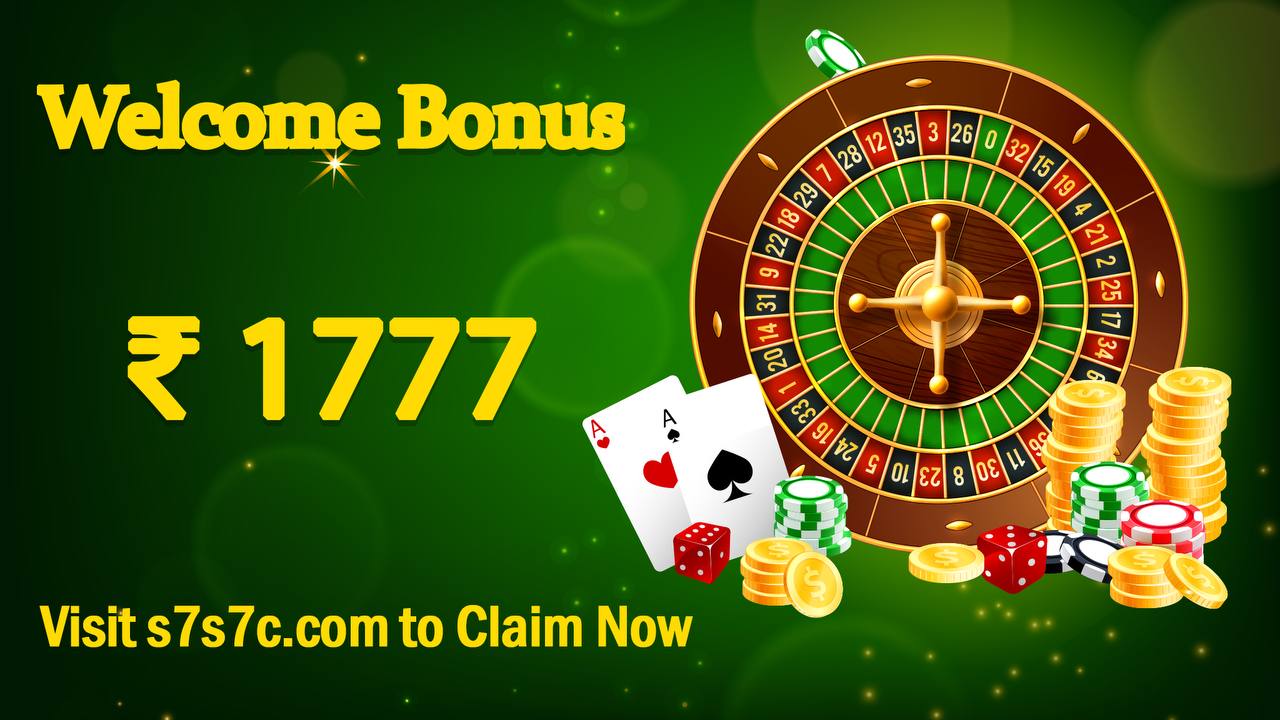
An In-Depth Look at Rummy Culture Rummy culture includes the competitive, social, & recreational elements of playing rummy, a card game that has been popular for centuries all over the world. In its most basic form, rummy is a social activity that unites people & promotes friendly competition and camaraderie. Local traditions, customs, and social norms have a significant impact on the rummy culture in various regions. Rummy is a generation-spanning activity that is played at social events, festivals, and family get-togethers in many communities.
Because of the game’s casual atmosphere, players can have meaningful discussions, exchange anecdotes, and make enduring memories while relishing the excitement of competition. Also, rummy culture is distinguished by its flexibility & development over time. Many cultural elements have been incorporated into the game as it has become more popular worldwide, resulting in a variety of play styles and variations. Every variation of the game, from the traditional Gin Rummy in the US to Indian Rummy with its own set of rules and tactics, captures the distinct tastes and inclinations of its players. The rise of internet platforms, which have opened up rummy to a wider audience, adds even more cultural depth.
Players today have the opportunity to interact with people worldwide, sharing their passion for the game & learning about various tactics and styles of play. Thus, tradition, social interaction, and contemporary technology are the threads that make up the dynamic tapestry that is rummy culture. The Internationalization of Rummy. Rummy changed significantly as it traveled across continents, adjusting to the tastes & playing methods of various societies.
Rummy arrived in the United States by the late 1800s, where it quickly became very popular and gave rise to a number of variations, such as Oklahoma Rummy and Gin Rummy. The Development and Popularity of Rummy. As the 20th century went on, rummy developed into a common game in American homes and social settings. Players of all ages could enjoy the game because of its strategic depth and ease of use.
The Competitive Aspect and Global Reach of Rummy. Another important turning point in rummy’s history was the emergence of organized play. As tournaments developed, they drew competitive players looking to show off their abilities in front of a wider audience.
Nowadays, rummy is played professionally as well as informally among friends & family, with players traveling from all over the world to compete in international tournaments. Rummy requires skill, strategy, and a little bit of luck to play. Forming sets or runs with the cards dealt to each player is the aim of the game. Players usually begin with a hand of 10 cards from a standard 52-card deck. With one card face-up to begin the discard pile, the remaining cards form a draw pile. After drawing a card from the draw pile or the discard pile, each player discards one card from their hand.
Making legitimate combinations is essential to winning at rummy; runs are made up of three or more consecutive cards of the same suit, while sets are made up of three or four cards of the same rank but different suits. Playing rummy requires strategic thinking. In addition to concentrating on creating their own sets and runs, players also need to be aware of what their opponents are doing.
One can learn a lot about the combinations that other players are attempting to create by keeping an eye on which cards are being discarded. Players must also determine when to discard specific cards to prevent giving opponents an advantage or when to hold onto them for possible future combinations. The round ends when one player discards their last card after successfully combining all of their cards into legal combinations. Although scoring can change depending on the house rules or particular game variations, unmelded cards that are still in the hands of opponents are typically worth points.
Playing rummy has many advantages that go beyond simple enjoyment. The fact that it improves cognitive abilities is among its biggest benefits. Rummy players must exercise critical and strategic thinking as they assess their own hands & monitor the moves of their rivals.
This mental workout strengthens problem-solving skills and memory retention. Regularly playing card games, such as rummy, has been shown to improve cognitive abilities, making it a great way for people to keep their minds entertained & active. Rummy not only enhances cognitive function but also fosters emotional health & social interaction. Friends & family members can connect & bond through the game’s shared experiences.
Rummy promotes cooperation and communication among players, whether it is played leisurely at home or in more competitive environments. People who want to fight loneliness or lessen stress may find this social component especially helpful. Also, as players work through victories & defeats together, they cultivate resilience & sportsmanship, traits that are beneficial in both the card game and daily life. Over time, rummy tournaments have grown significantly in popularity, turning recreational play into competitive occasions that draw players from a variety of backgrounds.
These competitions can be local, hosted at community centers, or they can be international, with large sums of money up for grabs. Frequently, competitors engage in several rounds of competition, where their abilities are put to the test against various opponents. These tournaments can have different formats; some might use a point-based system where players earn points over multiple rounds, while others might use a knockout format where players are eliminated after losing a predetermined number of games. Rummy tournaments have become even more popular as a result of the growth of online gaming platforms, which have made them available to a worldwide audience. Now, gamers can connect with other fans around the world while playing in virtual tournaments from the comfort of their homes.
These online gatherings frequently offer live streaming choices, enabling viewers to follow games in real time and interact with players via chat windows. Also, a lot of platforms provide practice games and tutorials for beginners who want to improve their skills before competing. Players who are passionate about this classic card game can develop a sense of community as rummy develops further within this tournament framework. Indian Rummy: A Mainstay of Society.
Rummy has a special place in Indian festivals and social gatherings. Indian Rummy usually uses two decks of cards and has special rules like the need for players to form at least two sequences, one of which has to be pure (i.e., devoid of jokers). Players can now compete against one another for cash prizes or just for fun on a number of online platforms devoted exclusively to Indian Rummy, thanks to the game’s enormous popularity. Canasta and Gin Rummy are examples of Western variants.
Western nations, on the other hand, frequently prefer variations that stress distinct strategies & gameplay mechanics, such as Gin Rummy or Canasta. In these areas, rummy is commonly played in informal settings at parties or get-togethers with friends or family. Bringing People Together: A Universal Language.
These games’ cultural background frequently involves house rules or particular etiquette that make gameplay more difficult. Rummy’s capacity to unite people, whether via friendly competition or a mutual appreciation of the game itself, is constant regardless of location. Millions of people worldwide now play and enjoy rummy in a completely different way thanks to the digital era.
Traditional card games have evolved into virtual environments where players can interact with one another across geographic boundaries with the rise of online gaming platforms and smartphone applications. These platforms provide a number of features, including practice modes to improve skills, tutorials for novices, & live tournaments that mimic the thrill of live competitions. Rummy is now more accessible than ever before, drawing in new players who might not have had the chance to play the game before. Also, new technological developments have added creative gameplay elements that improve the user experience.
For example, a lot of online platforms use sound effects and interactive graphics to give players an immersive experience. Also, chat rooms and other social features let players interact with one another while playing, which strengthens bonds between rummy enthusiasts. This development has not only broadened the game’s appeal but also helped it maintain its appeal as a competitive sport & leisure activity in the fast-paced digital world of today. It is simple to download a Rummy APK app, which enables users to conveniently play their preferred card game on mobile devices.
First, in order to prevent security risks related to third-party apps, users should make sure they are downloading from reliable sources like official app stores or reliable websites. In particular, Android users can look up “Rummy” in the Google Play Store or go to the official website of the online gaming platform of their choice to find direct links to download APK files. Users can start the download of the desired app by clicking the “Install” button or by following any instructions the operating system of their device may provide. If utilizing an APK file from a source other than the official app stores, users may need to enable installation from unknown sources after the download is finished. This setting is usually located under “Security” in device settings.
Players can begin playing the different rummy games on the platform by creating an account or logging in with their current login information after the installation is complete. The lively world of online rummy is accessible to enthusiasts at any time and from any location with a few easy steps. To sum up, rummy culture is a complex fabric made up of social interaction, history, cognitive advantages, a spirit of competition, & technological advancement. Through shared experiences at the card table, this popular card game continues to flourish across many platforms and cultures, serving as an enduring symbol of human connection.




